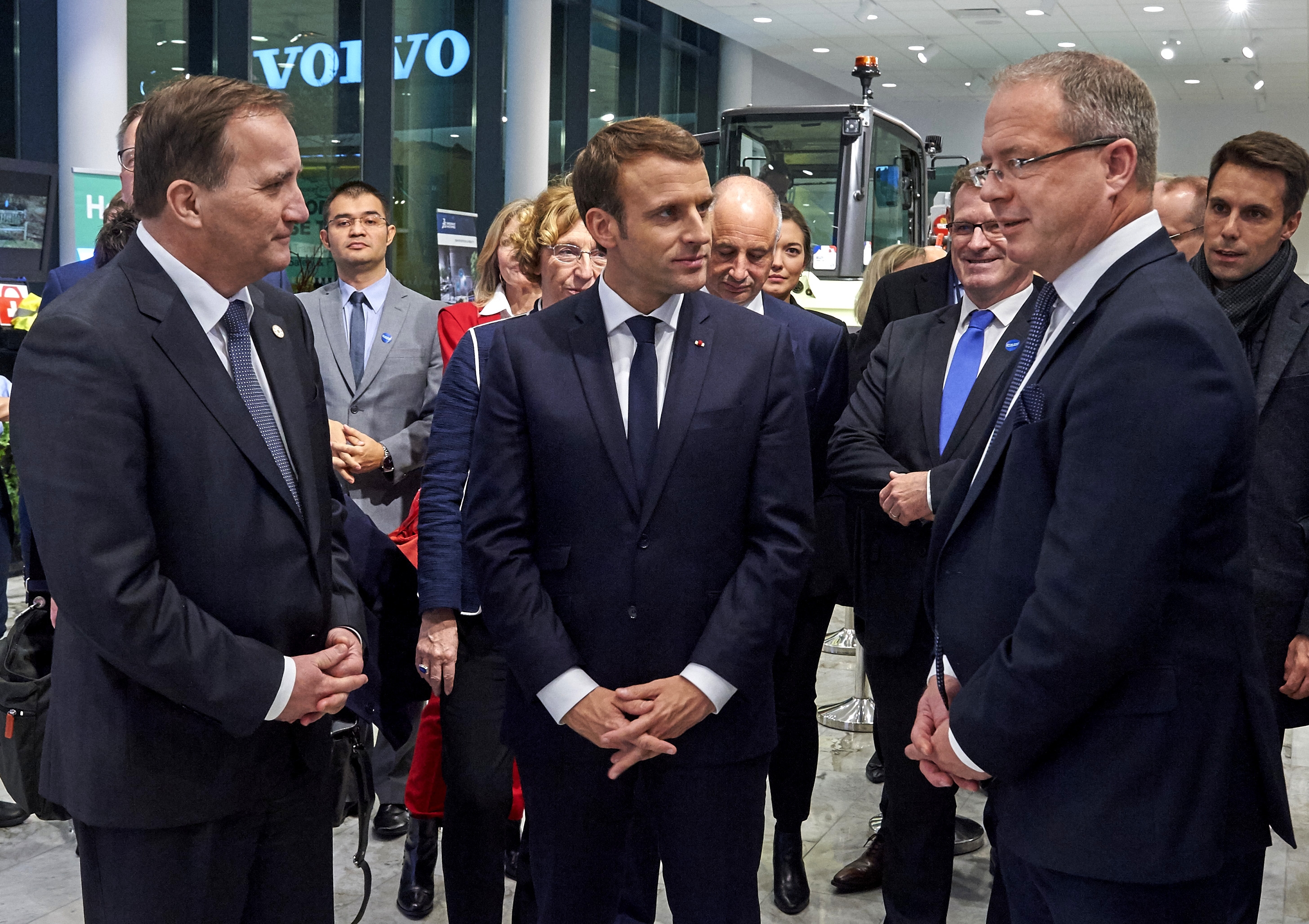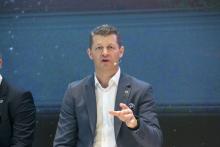
The Swedish Prime Minister Stefan Löfven and the French President Emmanuel Macron have signed a strategic partnership between their two countries for innovation, digital transformation and green solutions during a ceremony at the
Ahcène Nedjimi, Electromobility Specialist and EX2 Project Leader at Volvo Construction Equipment (Volvo CE), presented the machine to Prime Minister Löfven and President Macron. “It was a great honor to be able to conduct a live demonstration and present the EX2 to the French and Swedish leaders,” says Ahcène. “It was very appropriate to highlight this machine because they were discussing increased cooperation and innovation between our two countries, and the EX2 is an example of this collaboration in action. The EX2 stemmed from Volvo CE’s ELEXC research project which was partly financed by the French government, as well as various funding bodies in France. The prototype was built in Belley, France, and when I told President Macron this he was extremely proud.”
Innovating for a sustainable future
The EX2 is a 100% electric compact excavator prototype that delivers zero emissions, 10 times higher efficiency, 10 times lower noise levels and reduced total cost of ownership, compared to its conventional counterparts. It is believed to be the world’s first fully-electric compact excavator prototype. The EX2 is part of a research project and is not commercially available.
“Prime Minister Löfven and President Macron were interested in the machine’s performance and how it compared to a conventional compact excavator,” says Ahcène, who is a French citizen. “We discussed how it could shape the cities of tomorrow and what it could do for society. The French government plans to end sales of petrol and diesel vehicles by 2040 as part of its plans to meet the Paris climate accord targets. I think with the EX2, President Macron could see that Volvo CE is also working towards sustainable development. The electrification of construction equipment will produce cleaner, quieter and more efficient machines – this represents the future of our industry.”
It is hoped that the strategic partnership, signed by the two leaders at the Volvo headquarters on Friday 17 November 2017, will lead to increased cooperation between the two countries for a more innovative and greener European Union. The agreement is based on the innovative capacity of public sector stakeholders, academia and the business sector. It covers four areas:
1. Green solutions for transport, clean energy and smart cities.
2. Green financing for climate-resilient economies.
3. Digital transformation, smart industries and startups.
4. Health and life sciences innovation.












